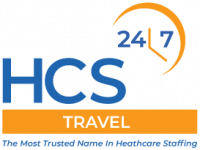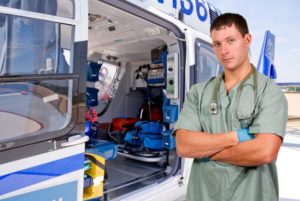Nurses have been on the front lines of the pandemic since the start. Whether in traditional nursing roles, in emergency rooms, administering vaccines, or traveling, nurses have been first responders to the COVID-19 pandemic.
Though the pandemic is nearing an end as vaccines are more widely distributed, COVID-19 regulations are still in place in hospitals and high-risk environments where nurses work. For travel nurses, this presents an extra layer of challenges to stay on-track with existing requirements, adapt with new ones, and stay aware of changes within the health care realm as the pandemic goes on.
In the U.S., each state’s response to the pandemic has been unique. For travel nurses requirements in one job could look different from another depending on location.
Here are three essential tips for travel nurses to help them stay on top of COVID-19 requirements no matter where they’re working.
Know The Basics of COVID-19 Safety
You’re a nurse, so you should be familiar with the basics of COVID-19 safety: wash your hands, wear a mask, social distance and so on. Make sure that you keep these in mind while traveling, living and working wherever you are going.
This in mind, while you should be provided with PPE and other resources, shortages across the world could leave you stranded. When traveling, make sure you have an abundance of back-up supplies readily available — this can include masks, gloves, hand sanitizer and so on.
While travel nursing is an enticing field because it offers you the ability to see other places, know that this may not be as easily possible even as the severity of the pandemic decreases. Make sure that your housing offers adequate room for necessary quarantine, and access to resources like food and household essentials.
Research Before You Arrive
If you’re headed to a new state for the first time since the start of the pandemic, make sure you know what you’re getting into. As mentioned before, COVID-19 safety requirements may vary by place and it’s essential to know the environment you will be entering. Here’s how to conduct a quick study of any state:
- Check the case numbers: Look at where you are on the pandemic curve depending on the state, or even the city. Is that location seeing a spike in cases? Is there a downturn? What is the current rate of COVID-19 hospitalizations? You can access general information through Johns Hopkins’ Coronavirus Resource Center or on county websites, depending on where you travel.
- Familiarize yourself with current events: Every state’s legislation has handled the COVID-19 pandemic differently. With this in mind, follow local news outlets to find updated information on the most recent changes in regulations. Finding the local news channel for your next city can be as easy as a Google search or a scroll on Instagram. And most news outlets have made essential coronavirus coverage free, so you won’t hit a paywall. If you’re traveling soon, follow these outlets on social media so you can get notifications if something changes.
- Know the culture: Depending on where you’re going in the U.S., the response to the COVID-19 pandemic will vary. Though these are sweeping generalizations, you might find that the general public has followed COVID-19 guidelines more strictly on the East Coast and in Southern California, but less intensely in the Gulf states. You can identify these with a simple search for information around mask mandates, or even around vaccine distribution. Also take note of whether restaurants, stores, or services are operating and at what capacity.
Create a Routine You Can Depend On
Whether you’re working in a COVID-19 ward or within other healthcare departments, know that you will need a routine to keep yourself physically healthy and also mentally healthy. The pandemic has taken a huge toll on nurses and while your self-sacrifice is appreciated around the world, we need nurses to take care of themselves.
No matter where you are, try to stick with a pre-work and post-work routine that will offer you structure and safety no matter the environment.
A pre-work routine can include something to care for your mental health — like meditation, talking with loved ones, or even exercise — and things like hydration, eating nutritious food, and so on. A post-work routine can include the same, but with careful attention to COVID-19 safety precautions.
Perhaps you have a set rule that you immediately wash dirty scrubs and take a hot shower upon arriving home after work, to prevent the spread of germs. Another way to separate home and work life could be to make sure you have a hospital bag and a personal bag, for keeping track of essential items but keeping them separate to prevent the spread of germs.
These tips work even in a post-pandemic world, helping travel nurses maintain structure and normalcy in any environment.
Travel nurses helped countless hospitals keep COVID-19 cases lower than they could’ve been by offering a helping hand when needed. They filled a gap when others couldn’t. As the pandemic continues, even as case numbers decrease, the same regulations will likely stay in place and require the same extra amount of care from travel nurses. We hope that these tips offer you a set of ideas to help structure your work, no matter where you are, and give you the tools necessary to stay safe in or outside of the workplace.
Ready for your next assignment? Check out our job board for the latest travel nurse jobs in the top travel nurse locations!




